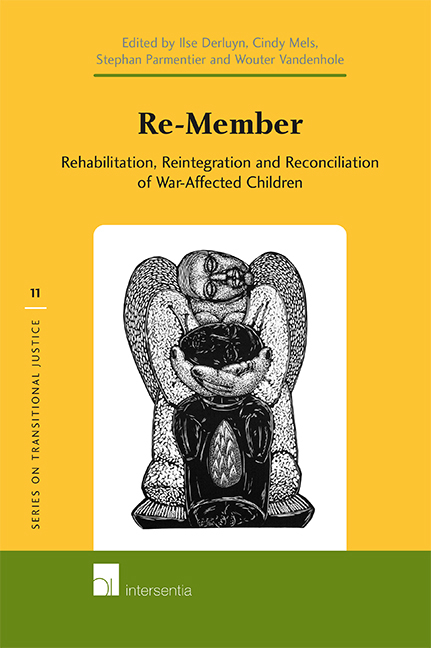Book contents
- Frontmatter
- Preface
- Foreword
- Contents
- Introduction: Children Affected by Armed Conflict at the Intersection of Three Fields of Study
- PART I SETTING THE SCENE: THREE DISCIPLINARY PERSPECTIVES
- PART II LESSONS LEARNT FROM CURRENT PRACTICES AND APPROACHES
- PART III EXPLORING RESOURCES THROUGH EMPIRICAL RESEARCH
- PART IV LOOKING BACK, REACHING FORWARD
- About the Editors
- About the Authors
12 - Children in Twentieth Century Europe Affected by War: Historical Experiences in Giving Them Refuge
Published online by Cambridge University Press: 20 January 2021
- Frontmatter
- Preface
- Foreword
- Contents
- Introduction: Children Affected by Armed Conflict at the Intersection of Three Fields of Study
- PART I SETTING THE SCENE: THREE DISCIPLINARY PERSPECTIVES
- PART II LESSONS LEARNT FROM CURRENT PRACTICES AND APPROACHES
- PART III EXPLORING RESOURCES THROUGH EMPIRICAL RESEARCH
- PART IV LOOKING BACK, REACHING FORWARD
- About the Editors
- About the Authors
Summary
INTRODUCTION
Children have been affected by war throughout history.This article will analyse how children in Europe have been a privileged category in qualifying for a refuge protecting them against violence throughout the twentieth century. We focus on three cases during what some have called the long Second World War (1936–45): Basque children during the Spanish civil war, German-Jewish children persecuted by the Nazis in the late 1930s and children in France in the early 1940s. These three groups of children were considered particularly deserving and protection was granted to them. The reasons why these children were singled out for protection will be covered as well as the concrete modalities of assistance to them. Refugee policy at that time was a public-private mix and from the outset civil society was strongly involved in the decision to grant protection to the children.This contribution pays considerable attention to the input of civil society into the rescue schemes. The long-term consequences of these humanitarian programmes directed at children will also be discussed. The rehabilitation and reintegration of the war-affected children can be fully assessed through the evaluation of the rescue operations by all stakeholders, including of course the children.
WAR-AFFECTED CHILDREN FROM SPAIN: OFFERING ASYLUM IN AN EXTREMELY POLITICALLY POLARISED SITUATION (1937–39)
General Franco led a revolt in Spanish Morocco against the democratically elected Popular Front, a coalition of left-wing parties. The Italian fascist government supported this rebellion, thereby enabling it to spread quickly to the Spanish mainland. Burgos joined the insurgents and the rebels moved up to the north of Spain. In the Basque country the rebels met with fierce resistance and battles began by mid-August 1936. The violence of this war was extreme, not only due to the fact that it was a civil war, but also due to foreign involvement. Germany and Italy sent considerable quantities of arms and equipment to the fascist rebels – Germany even gave air support – while the Soviet Union gave military aid to the Republican side. German air support (the Condor legion) added to the high number of casualties and the extreme violence. Not only military objectives were the target: the civilian population was not spared at all.
- Type
- Chapter
- Information
- Re-MemberRehabilitation, Reintegration and Reconciliation of War-Affected Children, pp. 283 - 304Publisher: IntersentiaPrint publication year: 2012



